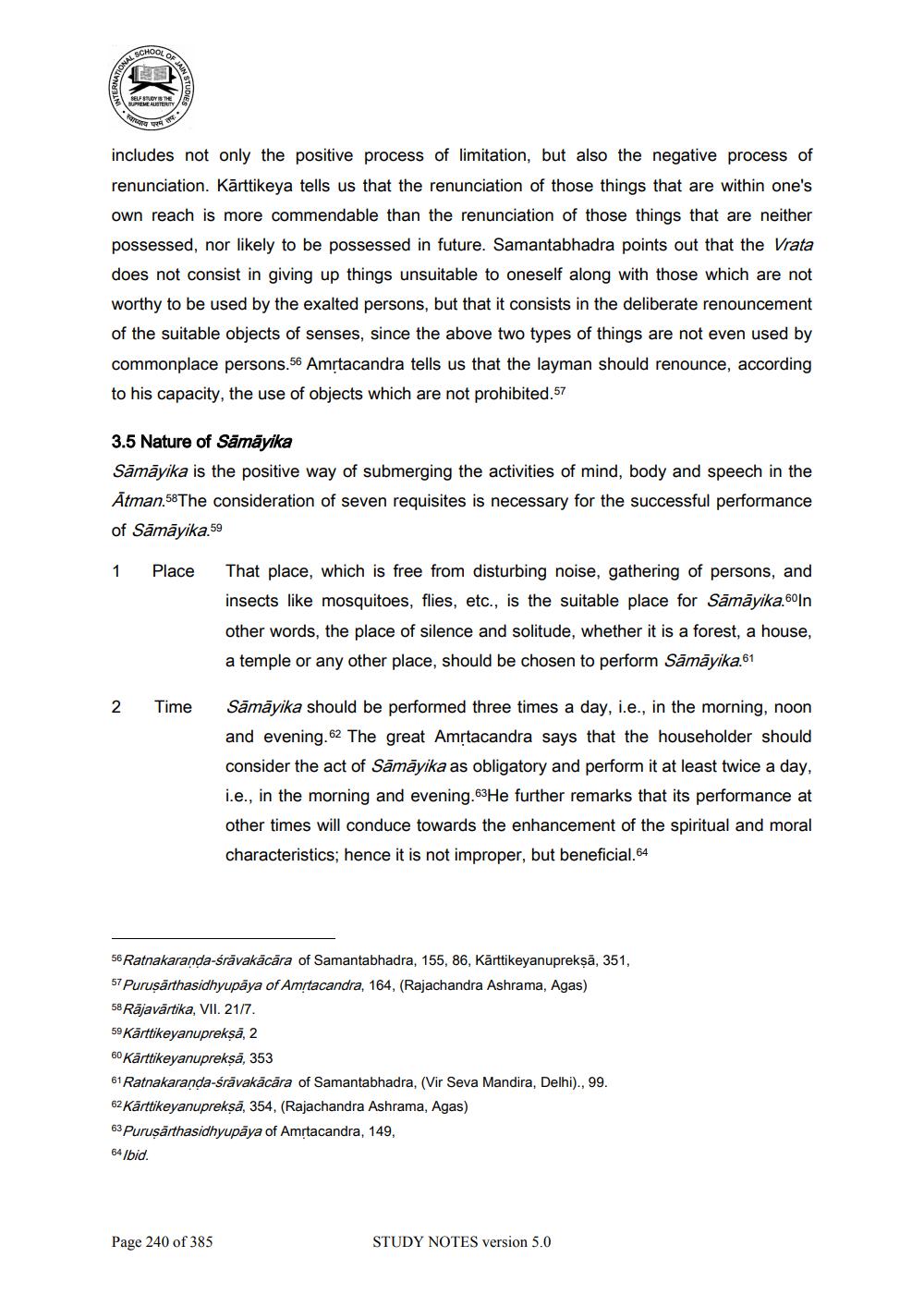________________
includes not only the positive process of limitation, but also the negative process of renunciation. Kārttikeya tells us that the renunciation of those things that are within one's own reach is more commendable than the renunciation of those things that are neither possessed, nor likely to be possessed in future. Samantabhadra points out that the Vrata does not consist in giving up things unsuitable to oneself along with those which are not worthy to be used by the exalted persons, but that it consists in the deliberate renouncement of the suitable objects of senses, since the above two types of things are not even used by commonplace persons. 56 Amrtacandra tells us that the layman should renounce, according to his capacity, the use of objects which are not prohibited. 57
3.5 Nature of Sāmāyika Sāmāyika is the positive way of submerging the activities of mind, body and speech in the Ātman.58The consideration of seven requisites is necessary for the successful performance of Sāmāyika.59
1
Place
That place, which is free from disturbing noise, gathering of persons, and insects like mosquitoes, flies, etc., is the suitable place for Sāmāyika.60In other words, the place of silence and solitude, whether it is a forest, a house, a temple or any other place, should be chosen to perform Sāmāyika.61
2
Time
Sāmāyika should be performed three times a day, i.e., in the morning, noon and evening. 62 The great Amrtacandra says that the householder should consider the act of Sāmāyika as obligatory and perform it at least twice a day, i.e., in the morning and evening.63He further remarks that its performance at other times will conduce towards the enhancement of the spiritual and moral characteristics; hence it is not improper, but beneficial.64
56 Ratnakaranda-śrāvakācāra of Samantabhadra, 155, 86, Kārttikeyanupreksā, 351, 57 Puruşārthasidhyupāya of Amrtacandra, 164, (Rajachandra Ashrama, Agas) 58 Rājavārtika, VII. 21/7. 59 Kärttikeyanupreksā, 2 60 Kärttikeyanupreksā, 353 61 Ratnakaranda-śrāvakācāra of Samantabhadra, (Vir Seva Mandira, Delhi)., 99. 62 Kärttikeyanupreksā, 354, (Rajachandra Ashrama, Agas) 63 Puruşārthasidhyupāya of Amrtacandra, 149,
64 lbid.
Page 240 of 385
STUDY NOTES version 5.0




